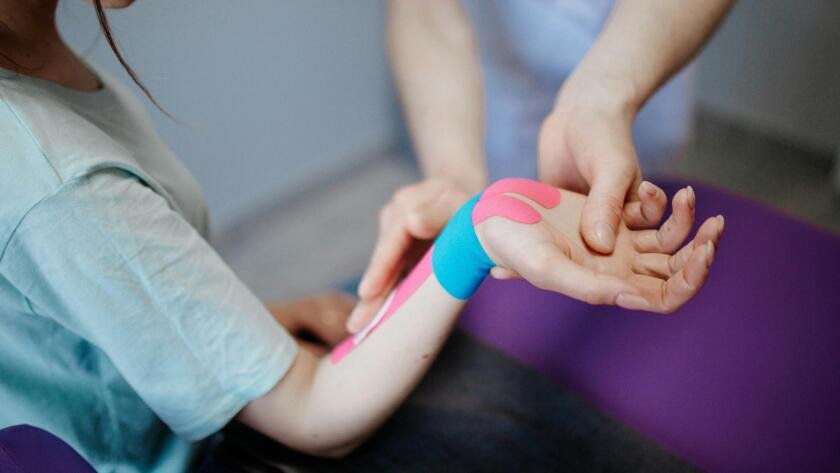Healthy coping mechanisms are strategies that help individuals effectively manage stress, emotions, and challenging situations in a constructive way. These methods promote mental, emotional, and physical well-being while fostering resilience in the face of adversity.
Key Healthy Coping Mechanisms
Healthy Lifestyle Choices: Maintaining a balanced diet, staying hydrated, and getting sufficient sleep are foundational for…

Massage therapy has long been recognized for its ability to reduce stress, improve well-being, and enhance physical health. Whether it’s a Swedish massage, deep tissue massage, or relaxation therapy, regular massages can provide numerous benefits, especially for stress relief.
Reduces Muscle Tension and Pain
Stress often leads to muscle tightness and tension, especially in areas…

Group therapy at Physio Health Perth enhances emotional well-being by fostering connection, reducing isolation, and promoting shared experiences. It encourages open communication, helping individuals process emotions and gain support from others facing similar challenges. Through group discussions, participants can develop coping strategies, build resilience, and improve self-awareness, leading to better mental health outcomes.
Reduction of…

Insert Audio Title Here
Group therapy creates a consistent environment where individuals feel supported, connected, and understood. Daily interactions within the group provide a platform for sharing struggles, achievements, and coping strategies. This consistent connection helps reduce feelings of isolation and enhances emotional resilience.
Building Relationships: As trust develops within the group, emotional safety increases, leading to a deeper…

Physiotherapy plays a key role in post-surgery recovery by promoting healing, restoring mobility, reducing pain, and improving strength and stability. Early intervention helps accelerate recovery, reduces discomfort, and enhances overall outcomes. At Physio Health Perth, our therapists provide personalized care to support your post-surgery journey.
Physiotherapy plays a vital role in post-surgery recovery, ensuring…
"Experience the transformative power of peer support in group therapy—fostering healing, resilience, and a sense of belonging on your recovery journey."

Mobility is a cornerstone of independence and quality of life. When mobility is compromised due to injury, illness, or aging, therapy becomes a critical tool in restoring movement and function. Modern therapeutic practices integrate physical, occupational, and technological approaches to help individuals regain mobility and lead active lives.
Role of Physical Therapy
Improving Muscle Strength…

Pain Management and Inflammation Control
Physiotherapy employs advanced techniques to alleviate pain and reduce inflammation, which is crucial for recovery:
Electrotherapy (TENS): Uses electrical stimulation to relieve pain and accelerate healing.
Cold Therapy: Reduces swelling and numbs pain in acute injuries.
Heat Therapy: Relaxes tight muscles and improves blood flow for chronic injuries.
Tailored Rehabilitation…

Maintaining proper posture is essential for overall health and well-being, yet many individuals struggle with posture issues due to sedentary lifestyles, prolonged screen time, or physical injuries. Physiotherapy offers effective solutions to correct posture and alleviate the associated discomforts.
Role of Physiotherapy in Posture Correction
Physiotherapy addresses the root cause of posture problems through personalized…

Injuries can disrupt your daily life and hinder your ability to perform routine tasks or enjoy physical activities. Whether you're an athlete, a fitness enthusiast, or simply someone seeking to stay active, physiotherapy plays a vital role in preventing injuries and maintaining optimal physical health.
The Importance of Injury Prevention
Preventing injuries is not just…

Arthritis is a chronic condition that causes joint pain, stiffness, and inflammation, significantly impacting one’s quality of life. While there is no cure for arthritis, physiotherapy is a proven and effective way to manage symptoms, improve joint function, and enhance overall mobility.
Understanding Arthritis
Arthritis encompasses over 100 different conditions, with the most common types…
Psychology plays a crucial role in understanding and managing pain, emphasizing the connection between the mind and physical sensations. By addressing psychological factors, individuals can better cope with chronic or acute pain and improve their quality of life.
Key Psychological Approaches to Pain Control
Cognitive Behavioral Therapy (CBT)
Helps patients identify and challenge negative thought…
